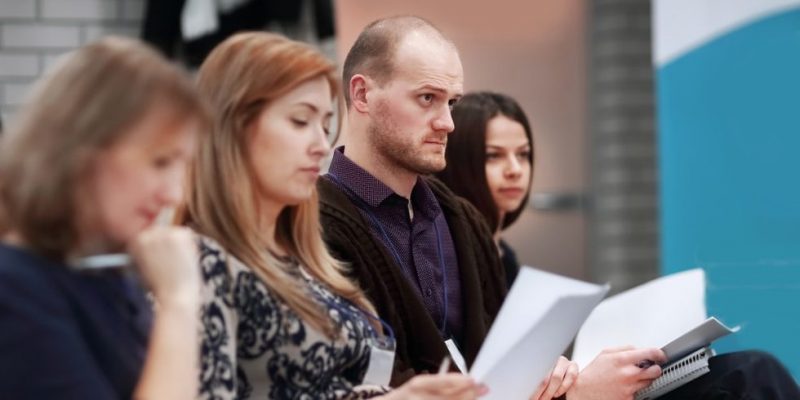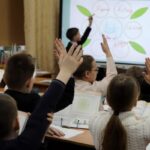We explain what cognitive is, what its learning, process and the activities that comprise it are like. Additionally, cognitive impairment.

What is cognitive?
The word “cognitive” comes from the Latin word noscere“know”, so that It applies to everything related to knowledge. That is, the faculty of the human species to apply its reasoning to the understanding of the nature that surrounds it, being able to establish relationships, obtain conclusions, predict events and project theories.
To some extent, all living beings have a certain capacity for cognition in a broad sense, that is, to translate their experiences into learning and thus adapt better to their environment, applying certain forms of memory and information privilege.
However, No other species has the enormous cognitive capacity of the human being which has allowed him, among many other things, to study cognition itself and identify important nearby concepts, such as intelligence, perception, learning or reasoning.
psychology It is perhaps the discipline that studies the cognitive processes of human beings the most and best, in its quest to understand and describe the functioning of the mind. So, is interested in cognitive mechanisms or processes in the structure that allows learning and, together with medicine, in the problems that with age or illness can arise around cognitive capacity.
See also: Cognitive skills
Cognitive process
It is called mental processes or cognitive processes. the different mental operations we carry out for the purpose of perceiving, encoding, storing and linking information. It can be both the information obtained through the senses from the outside world, as well as that formulated autonomously, in our inner core.
These processes fulfill the purpose of adapting to the environment which may sound simple, but in reality it is an extremely complex dynamic, in which we modify our behavior, predict future actions, formulate hypotheses and theories, and fulfill the purposes that we have assigned to ourselves.
Cognitive processes can be of two types:
- Simple or basic. When they involve the minimum actions of perception and retention of information so that we can process and work with it, that is, perception through the senses, the ability to focus attention, the fundamental activities of memory and the minimum processing of information sensory.
- Superior or complex. When they involve a high level of effort and integration of the individual's mental functions, allowing them to elaborate their own information from what is perceived, at high levels of abstraction or depth, which has nothing to do with the handling of difficult content, but rather with the capacity for a full intellectual life. We refer to processes such as the formation of thought, learning, logical capacity, creativity and language.
Cognitive learning

Cognitive learning is the process in which information enters the cognitive system, is processed and then triggers a reaction. According to the Theory of cognitive development proposed by the Swiss Jean Piaget (1896-1980), the development of this capacity that takes place throughout the first years of life, necessarily includes the following stages:
- Sensorimotor period It begins with birth and ends around two years of age, and consists of learning through the senses and the impression that the events that the individual experiences leave on the memory. As it grows and imitates its parents, the infant goes from a reflected existence, of mere stimulus-response, to demonstrating its first behavioral patterns.
- Preoperational period Between the ages of two and seven, children gain the ability to create symbols, which is why they enjoy children's stories so much. This is closely linked to the acquisition of language, which allows them to “take” the world through words, although they still lack the capacity for logical operations, since the child understands the world from their own egocentric perspective.
- Period of concrete actions Period that spans from eight years to eleven and presents the entry of logic into the individual's mind, although still limited by concreteness and immediacy. It is rare for young people to be able to organize and classify their own knowledge, since their thinking is limited by what they can personally experience.
- Formal operations period Starting at the age of eleven and lasting until the age of fifteen, in this period formal thinking is fully developed, empowering the individual to carry out hypotheses of what could happen, test them and draw conclusions. Furthermore, it is here where interest in personal identity and human relationships begins to occur in young people.
Cognitive impairment
Cognitive impairment is understood as decline or progressive decline in human cognitive functions. It may be due to internal conditions of the body, such as the wear and tear of age, or the appearance of mental illnesses such as Alzheimer's or dementia.
Many of these conditions are congenital, typical of each person's genetic inheritance, while others may be linked to the effect of vital habits on the human brain: diet, amount of sleep, daily mental activity, etc.
In most cases, cognitive impairment processes begin slowly and progressively after 45 years of age and appear 20 or 30 years later. There are no appropriate medicinal treatments to slow or reverse cognitive decline.
Cognitive impairment can be:
- Mild. Forgetfulness, decreased understanding, slowing of thinking.
- Serious. Loss of language, erasure of personality, catatonia.
Cognitive activities

This is the name given to the different mechanisms that make up the cognitive process, and which, although we can define them separately, really act together to obtain a specific behavior from the individual. The most important of these activities are:
- Attention It consists of the allocation of mental (neural) resources to the perception and processing of information, to focus the mind on a certain point. Thanks to the activation of certain neural networks, attention can be selective and exclusive, abstracting from the environment and focusing on the point of interest.
- Memory Memory is understood as the set of knowledge acquired and retrieved without the explicit use of consciousness, which includes body memory and motor skills, and an enormous background of experience available to the individual.
- Language It refers to linguistic mental capacity, specifically in relation to the lexicon (the number of words and their meanings) and syntax (the formal ordering of words), all according to a very complex combinatorial grammar. Language is an inseparable projection of thought, and there is no part of it that the former cannot reflect.
- Perception It is about the reception, organization, integration and interpretation of sensory information. It is a process that involves the comparison of this new information with the “database” of previous experience and its more complex formulation, in order to allow learning.
- Intelligence It refers to the ability to process large amounts of information in a convenient, agile and precise way, to provide solutions to concrete problems or formulate abstract knowledge, which later allows us to predict or solve problems even more efficiently. This efficiency has to do with the ability to take advantage of the available means to face situations and achieve objectives.
Cognitive and cognitive
According to the Dictionary of the Royal Spanish Academy, cognitive is defined as “belonging to or relating to knowledge”, while cognitive is what is “capable of knowing”. Seen this way, the difference between both terms is:
- Cognitive. It is linked to the power of knowing, that is, the possibility of doing so.
- Cognitive. It is that which, in itself, has to do in some way with knowledge.
It is a subtlety, in any case, and Both terms are generally used as synonyms. or equivalent.
Continue with: Logical thinking
References
- “Cognition” on Wikipedia.
- “Cognitive development” on Wikipedia.
- “Cognitive” in the Language Dictionary of the Royal Spanish Academy.
- “What is cognitive impairment and what types are there?” on Mapfre's Health Channel.





